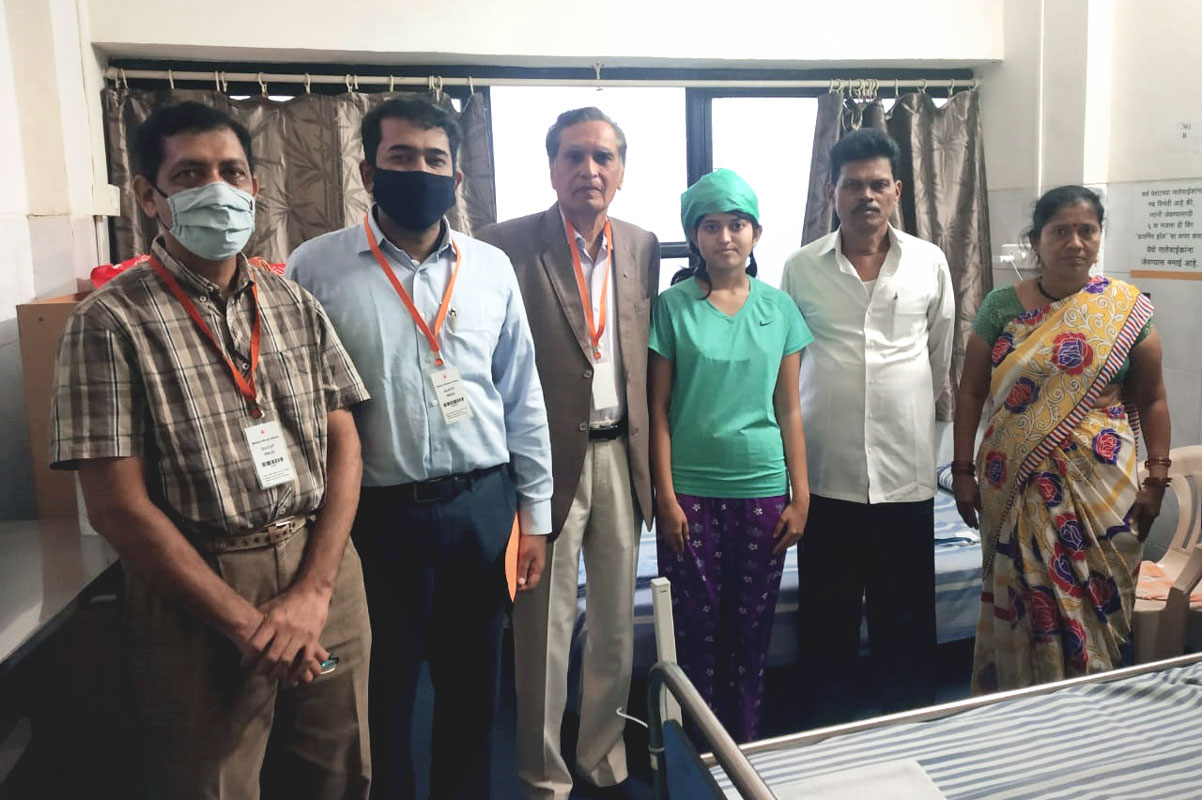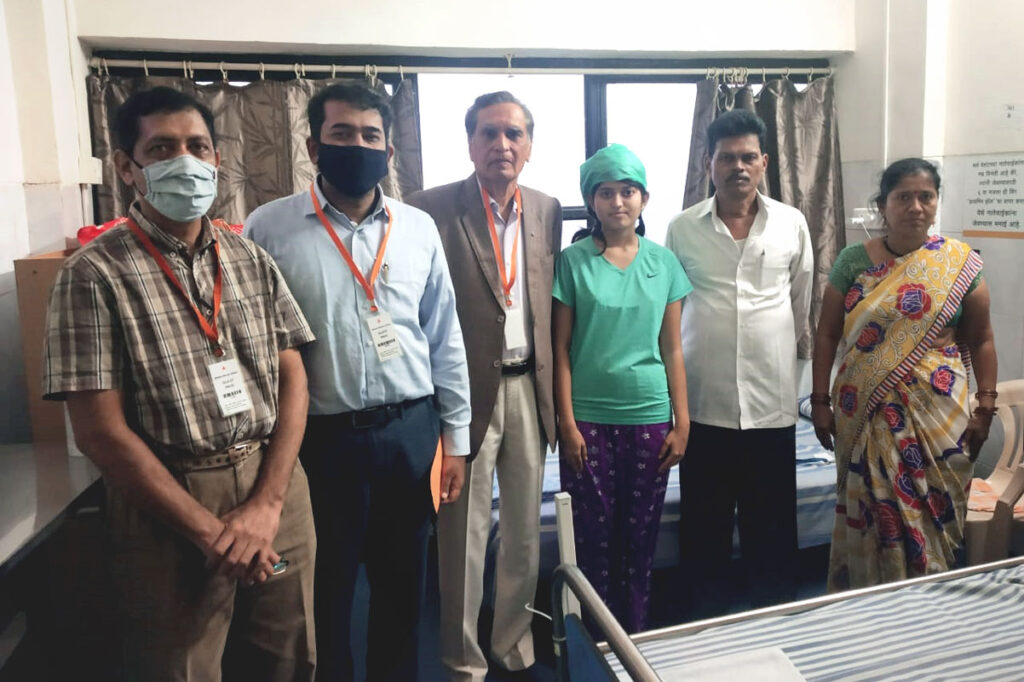A 21-year-old married woman (name withheld on request) was sent back to her parents’ home in Osmanabad, Maharashtra by her husband’s family as she suffered from frequent seizures due to epilepsy. But today her father is a happy man despite the setback because she is totally cured following a brain surgery which was beyond his means. “No more seizures, and no more anti-epileptic drugs. My daughter can now live a normal, healthy life without fear and the doctor has said that she can even take a job,” he says. The family has put the failed marriage behind them.

For Appa Nimbargi of Akkalkot, Solapur, the surgery “brought reincarnation for my son. I am so happy that he can now be as normal like his other friends and without any fear of epileptic attacks.”
Thanks to RC Pune Baner, RID 3131, four epilepsy patients, including the above mentioned two, are cured of epilepsy. The club is all set to sponsor the life-changing surgical treatment for the fifth patient, an eight-year-old girl, soon.
These patients were identified for surgery following an epilepsy screening camp organised by the club in association with the Deenanath Mangeshkar Hospital in the city. “The four of them are cured for a long term. The doctor has certified that they can live a regular life like you and me,” says Sanket Saraf, president of this 11-year-old club with 40 members.
If clubs can organise epilepsy screening camps, or even talk about the surgery, people will certainly come forward to get their children cured of the disorder.
— Dr Nilesh Kurwale, neurosurgeon, Deenanath Mangeshkar Hospital, Pune
The club has signed an MoU with the hospital for providing surgical cure for less privileged epileptic patients at a subsidised cost which will be borne by the club.
It all began when neurosurgeon Dr Nilesh Kurwale was looking for support to break the barriers surrounding the treatment of epilepsy, a neurological disorder which causes abnormal brain activity resulting in seizures. “Often people are apprehensive about brain surgery. But it gives the most amazing cure for epilepsy and has an 80 per cent success rate. There is hardly much awareness about it, even among the medical fraternity,” says the doctor who heads the hospital’s neurology department.
With the Bajaj Foundation coming on board as sponsor, the hospital agreed to open an epilepsy centre there. He and his team of specialists perform around 150 such surgeries a year, says Surhuda Kulkarni, member of RC Pune Baner.
Only the screening procedure prior to the surgery is a lengthy process. “The surgery is not complicated and the patient will stop getting seizures from day one,” assures Dr Kurwale. Post-surgical follow up includes just three visits to the clinic, and “the patient is cured for life”. There is a wide belief among people that epilepsy can cure on its own. But it only hampers a person’s normal life, making him/her heavily drug dependent, he says.
The entire treatment costs around ₹3 lakh. People spend at least ₹2,000–3,000 a month for AEDs alone. Add to it the doctor visits, loss of earnings and the after-effects of the drugs. “Surgical treatment comes at a cost of two-and-a-half years of your medical treatment and it is safer and cheaper,” he claims.

The surgeon screened 25 patients at the camp and 12 were identified for surgery which will be sponsored by the club with the support of its corporate and individual donors. “Presently we have about ₹7 lakh earmarked for the treatment,” says Surhuda. The hospital also recommends patients to the club, which picks up the medical bills.
The estimated cost of treatment for the shortlisted patients is ₹2 crore and “we are progressing in phases depending on the availability of funds. We have all papers in place and donations are coming in,” assures Saraf. The club recently organised the ‘Walk for a cause’ to raise funds and awareness about the surgical cure for epilepsy.
“Rotary with its vast network of influential people can spread the good word just like how they took up congenital heart surgeries in a big way. If clubs can organise epilepsy screening camps, or even talk about the epileptic surgery, people will certainly come forward to get their children cured of the disorder. And it also helps as many Rotarians are also doctors. They have the reach and the capacity,” adds Dr Kurwale.






